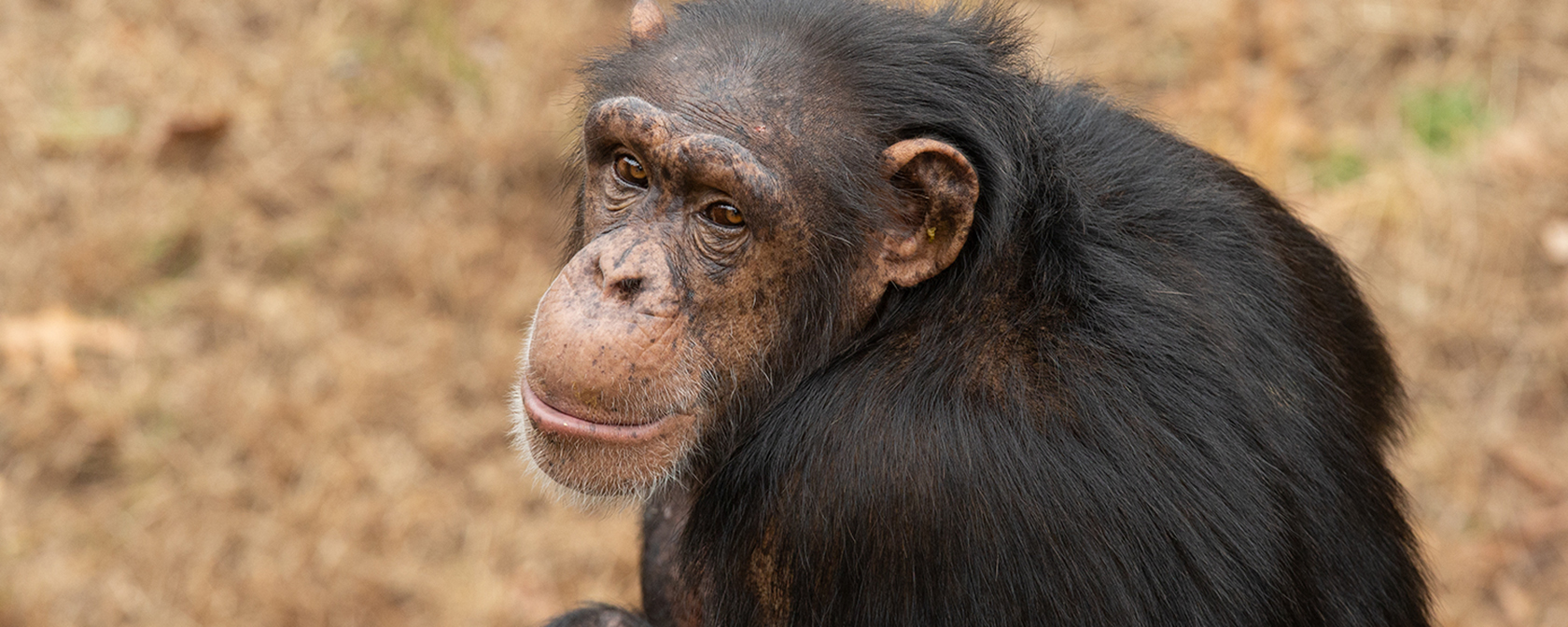By Sara Amundson and Kitty Block
Earlier this week, law enforcement officers from the Umatilla County Sheriff’s office in Oregon were called to a home because a pet chimpanzee attacked a woman who subsequently locked herself in a bedroom. The woman’s mother instructed deputies to shoot and kill the chimpanzee so that emergency responders could reach her daughter to provide medical assistance. A shot to the head ended the life of Buck, a chimpanzee whose unfortunate fate had actually been sealed 17 years before when he was first acquired.
The family who owned Buck referred to him as an “adopted son.” Seventeen years ago, baby Buck wore diapers and drank from a bottle. As he grew, he had the run of the house, as well as the family’s rural property. He ate burritos and Chinese food at their table. But treating chimpanzees or any other non-human primates as surrogate children does not change their wild and highly unpredictable nature.
Buck was a victim of the exotic pet trade who should never have been living in a human home. His death is just the latest tragic example of why we at the Humane Society of the United States and the Humane Society Legislative Fund support the federal Captive Primate Safety Act. If passed, this legislation would prohibit the possession of primate species like chimps, gibbons and monkeys as pets, and would restrict physical contact between them and the public. H.R. 3135 is co-led by Reps. Earl Blumenauer, D-Ore., and Brian Fitzpatrick, R-Pa.; S. 1588 is led by Sen. Richard Blumenthal, D-Conn.
Primates suffer enormously when kept as pets or used for public contact activities. To be sold for these purposes, infants are removed from the nurturing care of their protective mothers shortly after birth—a practice that can lead to lifelong physical and psychological problems. Worse, the complex behavioral and biological needs of primates go unmet in home settings, where these animals are typically denied mental stimulation, proper diets, freedom to exercise their natural behaviors and interaction with others of their species.
Primates are also dangerous to their owners and to other people. Purchased as cute and manageable infants, all primate species inevitably become aggressive, unpredictable and territorial as they mature. As with Buck, keeping these wild animals in a human home doesn’t change that. The members of even the smallest monkey species are incredibly strong and can inflict serious injuries with their teeth and nails. In Arizona, a woman’s pet marmoset monkey attacked her newborn grandchild, scratching and biting the baby’s face. In Tennessee, an escaped pet macaque monkey attacked and severely injured a woman washing a car in her driveway; the woman’s injuries required surgery and doctors said she was lucky to have survived.
In a cruel irony, the qualities that make primates problematic in captive settings often lead to their mistreatment. Owners, in a futile attempt to make the animals less dangerous, often mutilate primates by having their teeth removed—a painful procedure that can cause chronic health problems yet does not prevent the animals from inflicting harm. Over time, weary of their pet monkeys’ attacks on people and damage to the home, owners often isolate the animals, relegating them to lives of loneliness, frustration and neglect.
Primates can also spread viral, bacterial, fungal and parasitic infections that pose serious health risks to humans, such as tuberculosis and simian immunodeficiency virus. Some diseases can occur in primates without their showing symptoms, yet human exposure through bites or bodily fluids can be fatal. This is the case with the herpes B virus.
It is time to prevent these incidents before they happen. Primates like Buck simply shouldn’t be kept as pets. With the Captive Primate Safety Act, we have the chance to ensure that no more primates suffer his sad fate in the future. Contact your U.S. legislators today and urge them to support the Captive Primate Safety Act.
Kitty Block is President and CEO of the Humane Society of the United States.




